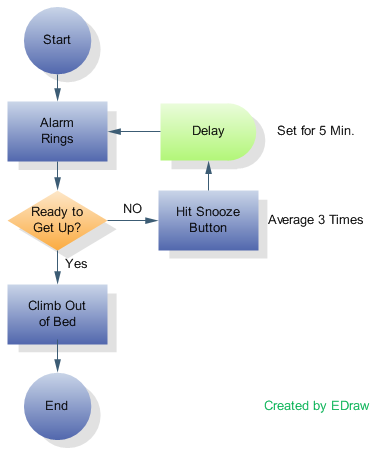The principle of Strategic Discipline consists of three disciplines, meetings, metrics, and priorities. These are the essential tools that John D Rockefeller used to build Standard Oil into the largest company in the world. They are still the essential disciplines that help your business communicate better and establish the fundamental principles to grow.
At our last growth summit Verne Harnish spoke to our coaching group and we discussed an essential fourth discipline. Work process flow charts.

What are the critical work processes that are absolutely essential for you to operate your business? Processes like how you acquire a customer, how a project moves through the organization, how employee are selected and trained, and how customers are billed and payments collected. Every business has critical systems that differentiate itself in the market. Positioning Systems recommends you identify these four to nine critical work flow processes and make sure you have them accurately documented and flow charted to assure they are running consistently and predictably. These systems are your proprietary hook into your market. How you do them is often your key distinction in the marketplace. These processes should deliver on your Brand Promise and thus are absolutely vital to your success and continued growth. Verne Harnish [Mastering the Rockefeller Habits] points out that processes are like hallway closets and garages which become messed up over time and require regular attention. It's advisable to take one process a quarter that seems the most dysfunctional and clean it up.
The Fourth Discipline thus follows Michael Gerber's [E-Myth Revisited] emphasis on systems development. It dovetails with Positioning Systems E-Myth Mastery experience of more than ten years of training and coaching as a Senior E-Myth Consultant.
Simply flow charting your systems can make a dramatic difference in performance. One of our clients in a manufacturing industry recently focused on identifying their critical systems. Their first experience with flow charting a system included reviewing it with employees to ensure they all agreed on the key benchmarks. The flow chart and discussions revealed issues that previously had not been recognized on the part of management. Applications that management felt were self-evident and normal patterns for the system were not being followed by their staff. The result? By reaching agreement on what the system should look like production capability ratcheted up by 100%.
As managers we sometimes forget that we first need to gain agreement with the people we manage on what the system/process should be. Michael Gerber was fond of saying, "You can't manage people. People are unmanageable!" We can only organize or manage three things: Work, space and time. We are judged on how well we do that. We cannot organize people. They can only do that.
Your businesses distinction in the marketplace is based on several key differentiating measure or activities. Recognizing this places great emphasis on the importance of these vital few systems operating consistently and predictably in order to maintain your share of the market. The fourth discipline - flowcharting and documenting these essential work flow processes along with constant innovating is an essential function in the life and growth of your business.






.jpeg?width=150&height=135&name=Hand%20with%20marker%20writing%20the%20question%20Whats%20Next_%20(1).jpeg)

